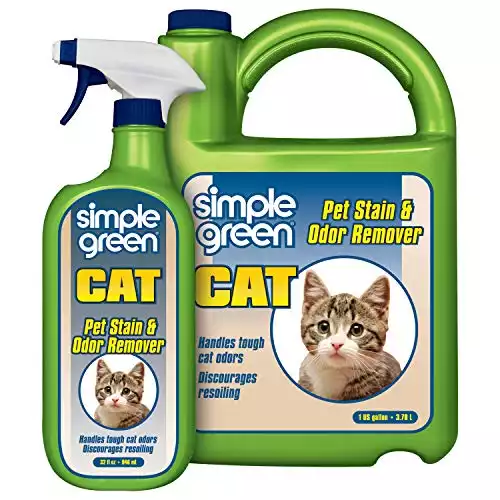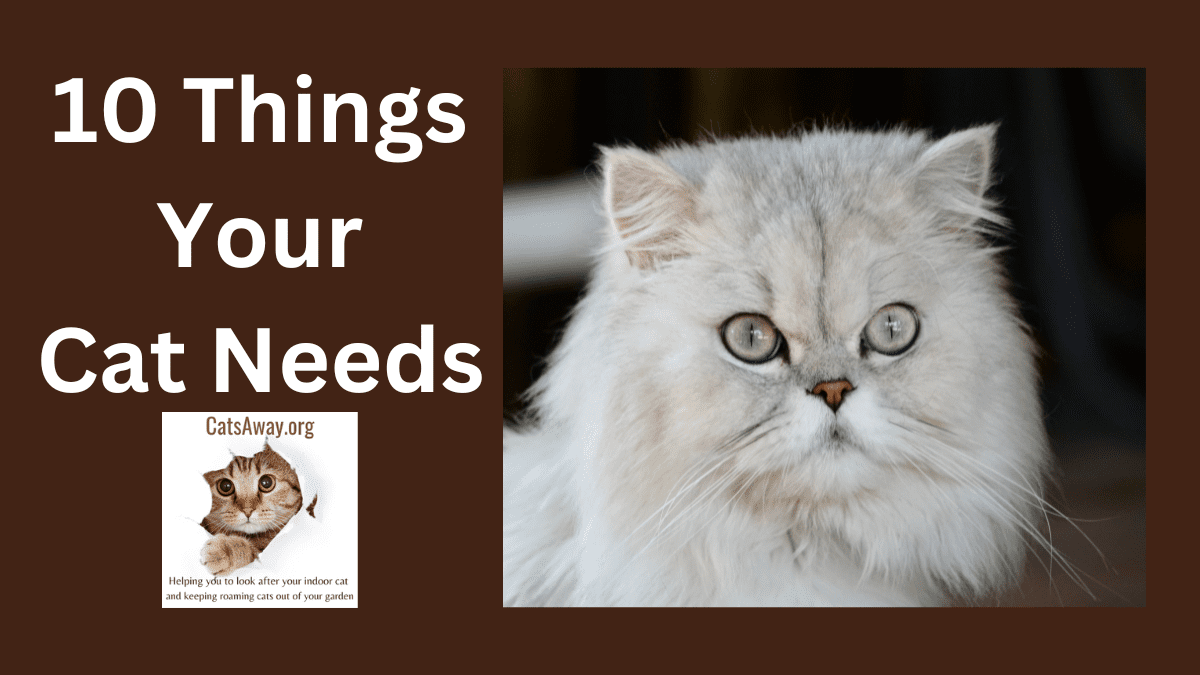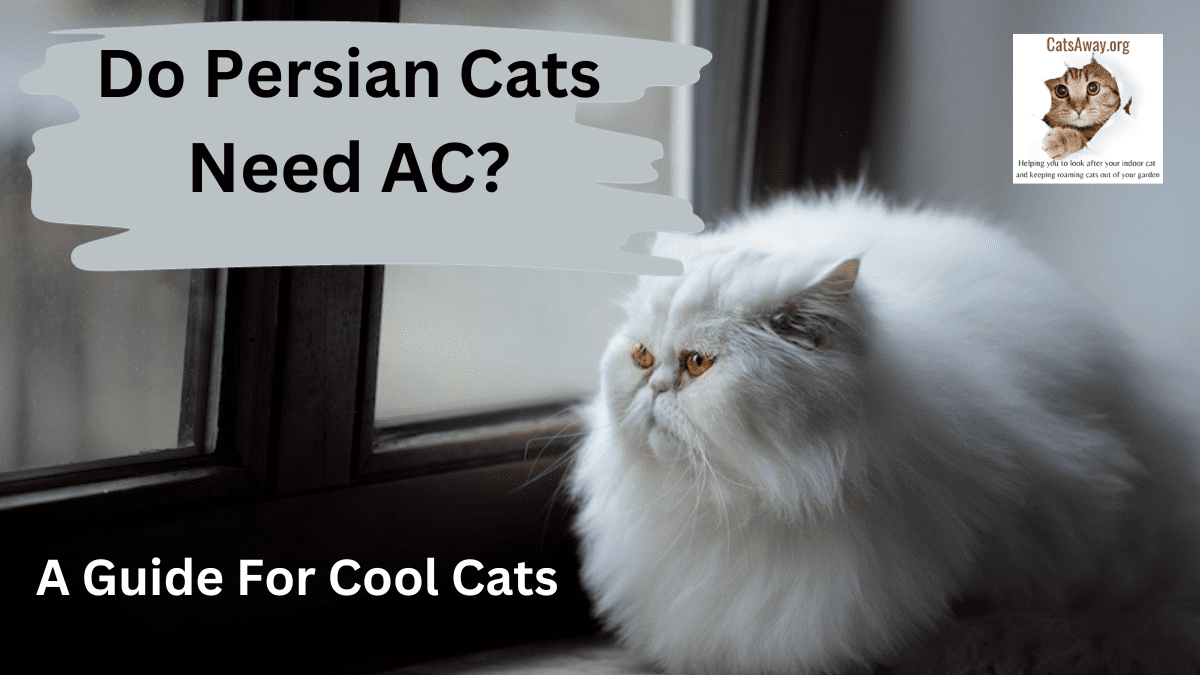Cat spray is a distinct and unpleasant smell used as a form of communication by our feline friends. But, what exactly does cat spray smell like, and how can we identify and address it?
What does cat spray smell like? Cats spray smells potent, with a strong and distinctly unpleasant odor. It is often described as a mix of musk, ammonia and a hint of sulfur or skunk-like scent.
Read on to delve into the world of cat spray, learn the distinct characteristics of its smell, and discover why our beloved pets engage in this behavior.
By understanding the nature of cat spray and its odor, you’ll be better equipped to tackle and prevent this unpleasant issue in your home.
What Is Cat Spray?
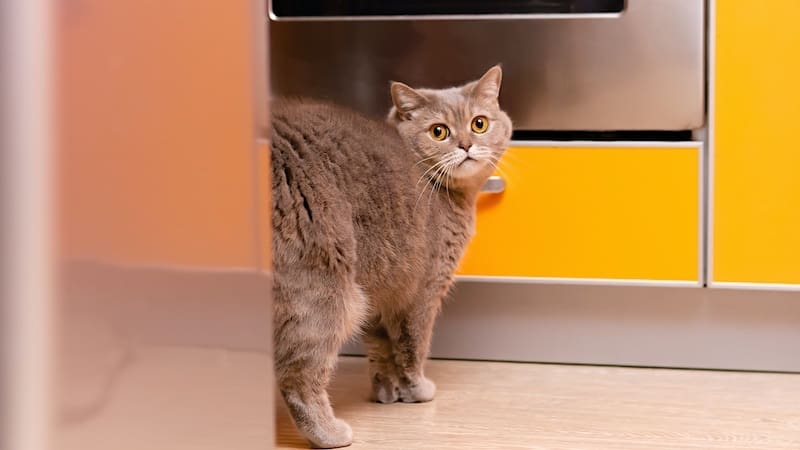
Cat spray is a form of communication used by felines to mark their territory and convey messages to other cats. It is a mixture of urine and chemicals produced by the cat’s scent glands located near their urethra.
While both male and female cats spray, it is more prevalent in unneutered male cats due to hormones. The spray is released in small bursts, creating a distinct scent that helps cats identify their territorial boundaries.
Neutered male cats and female cat spray doesn’t smell as pungent as an unaltered male cat spray
How do I know if my cat is spraying in the house or doing inappropriate urination? When a cat sprays, it lifts its tail and spritzes a small amount of liquid onto a vertical surface such as a wall, door, or furniture. This behavior differs from regular urination, in which a cat squats and deposits a larger volume of liquid onto the floor or other horizontal surfaces.
Spraying is often triggered by various factors, including stress, mating season, and territorial disputes with other cats. Addressing these triggers through environmental changes or medical intervention can be key to managing and reducing spraying behavior.
Understanding the Smell of Cat Spray
Cat spray is a strong and distinct odor that many find unpleasant. Next we’ll look at the various components that make up the cat spray smell
Scent Components and Factors
The primary components of cat spray are pheromones and urea. These organic compounds contribute to its strong and overpowering odor.
Various factors, such as diet, age, and overall health, can affect the intensity of cat spray smell. Understanding these factors can inform proper cat care and odor management.
Diet: A cat’s diet directly impacts their urine’s composition, which can cause variations in the smell of cat spray.
Age: As cats age, they may produce stronger-smelling spray due to changes in their body chemistry and metabolism.
Overall Health: Health issues, such as urinary tract infections, can cause changes in cat spray odor, indicating underlying problems that require attention.
Comparisons to Other Odors
People often compare the smell of cat spray to other common and recognizable odors. Such comparisons can provide a better frame of reference for those who have not experienced the scent before.
Cat spray smells like:
Ammonia: Similar to the pungent, irritating odor of ammonia, cat spray shares a strong, eye-watering quality.
Skunk: The potent smell of skunk spray is often likened to cat spray due to their shared sharp, long-lasting nature.
Sour Socks or Mold: Sometimes described as similar to sour socks or mold, cat spray can have a musty or rancid undertone in addition to its usual intensity.
What Causes a Cat to Spray?
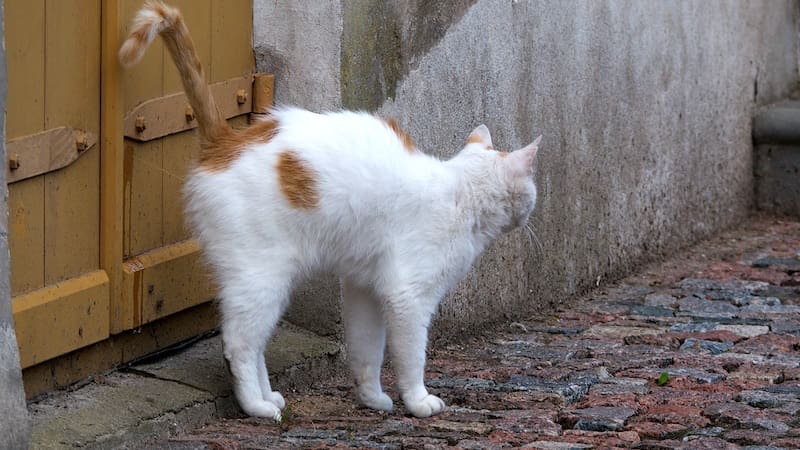
Territorial Marking
Cats often spray to mark their territory, as their urine contains pheromones that convey ownership to other cats. This behavior is more common among unneutered males but can also occur in female cats and neutered cats although it’s a lot less common.
An outdoor cat or an indoor cat living with several other cats are more prone to territorial spraying. If a cat feels threatened by competition for resources like food, toys, and sleeping spots can also contribute to this behavior.
Stress and Anxiety
Stress and anxiety can cause a cat to spray as a form of coping mechanism. Changes in their environment, such as the introduction of another cat or other new pet, new family member, moving home, or changes in their routine. All these situations can result in stress-related spraying.
To help alleviate stress, ensure your cat has a comfortable, secure space to retreat to, and minimize sudden environmental changes. Providing ample resources, like toys and hiding spots, can also help reduce competition between cats in multi-cat homes.
Medical Issues
Health problems can also cause cats to spray, especially urinary tract infections, kidney stones, or bladder inflammation. In these cases, the cat may associate the pain with their litter box, leading to avoidance and spraying elsewhere.
If you suspect your cat is spraying due to a medical issue, consult your veterinarian for a proper diagnosis and treatment plan. Early intervention can help prevent further complications and resolve the spraying behavior.
How to Prevent and Reduce Cat Spraying
Cat spraying is a common issue faced by indoor cat owners, but it can be prevented and reduced with the right approach.
Here are some key strategies to help prevent and control cat spraying:
Neutering or Spaying
Unaltered cats, particularly males, are more prone to spraying as a way to mark their territory.
Neutering or spaying can reduce this behavior and diminish the strong smell associated with cat spray.
Managing Stress in Cats
Stress can cause cats to spray as a coping mechanism, so it’s vital to identify and resolve sources of stress.
Provide your cat with a quiet and comfortable space, and introduce new pets, people, or furniture gradually.
Keeping a Clean Environment
Maintaining a clean living space is crucial to reducing cat spraying. This involves the regular cleaning of their litter box, providing multiple boxes in multi-cat households, and promptly cleaning up cat spray stains with an enzymatic cleaner such as the one below.
Learn more about how to clean cat spray off walls.
This enzyme cleaner permanently eliminates tough stains and unpleasant odors from cat spraying, urine, feces, vomit, dirt, blood and more.
32 oz bottle plus a 1 gallon refill.
FAQ
What does cat spray smell like compared to cat pee?
Cat spray has a similar odor to urine except that it is much more pungent due to the added pheromones and it’s usually darker than cat urine.
How can you tell the difference between spraying and urinating?
A cat urinates by squatting and peeing on the floor, when spraying they squirt onto a vertical surface such as a wall or door.
Conclusion
As a final reminder, it’s crucial for cat owners to identify and address the underlying causes of their cat’s spraying behavior. This may include medical issues, anxiety or territorial disputes, among others.
Some effective solutions for reducing or eliminating cat spray odors include regular cleaning of affected areas, use of enzymatic cleaners, and air purifiers. Additionally, consider neutering or spaying your pet to reduce the likelihood of scent marking.
By understanding and addressing the factors that contribute to cat spraying, you can create a more harmonious environment for both you and your feline companion. Remember that patience, persistence, and a positive approach can go a long way in resolving this issue.

